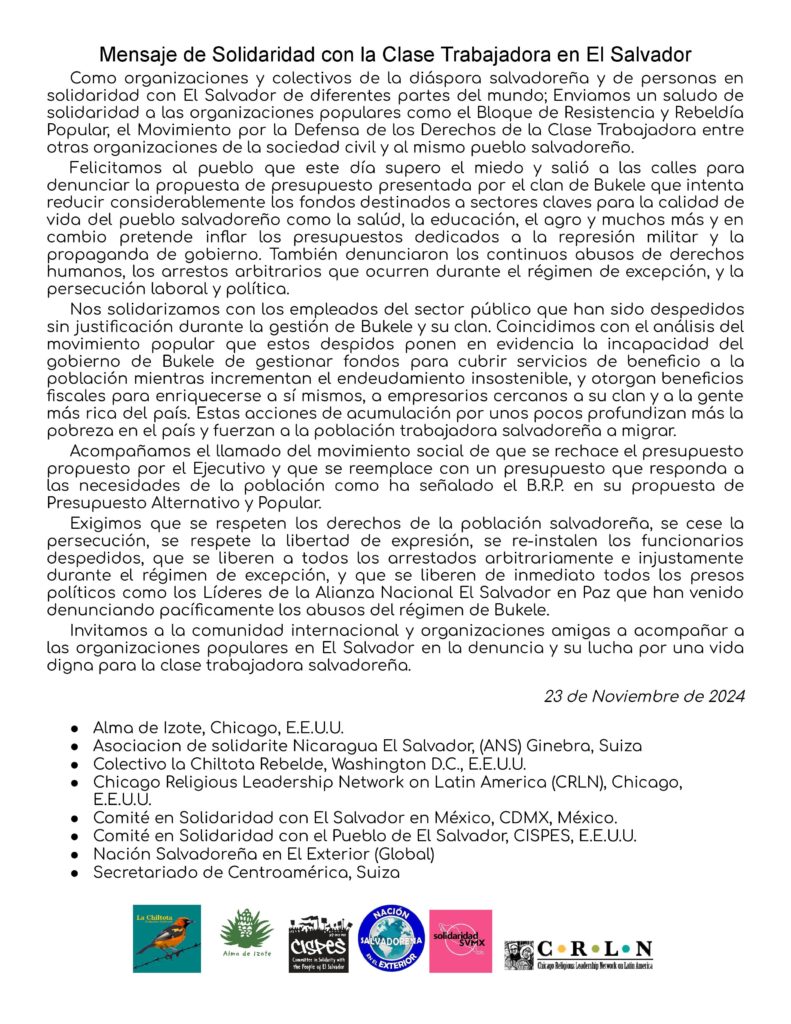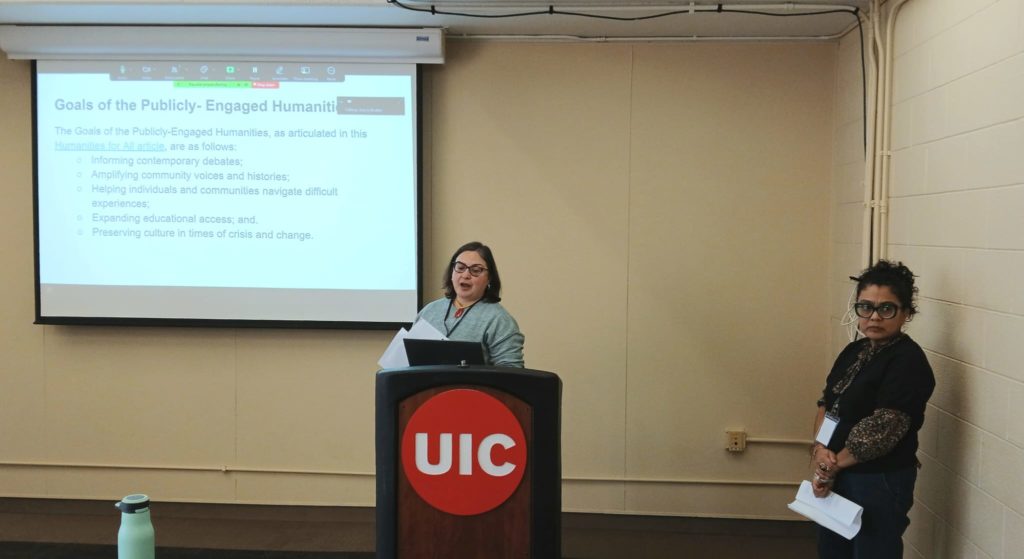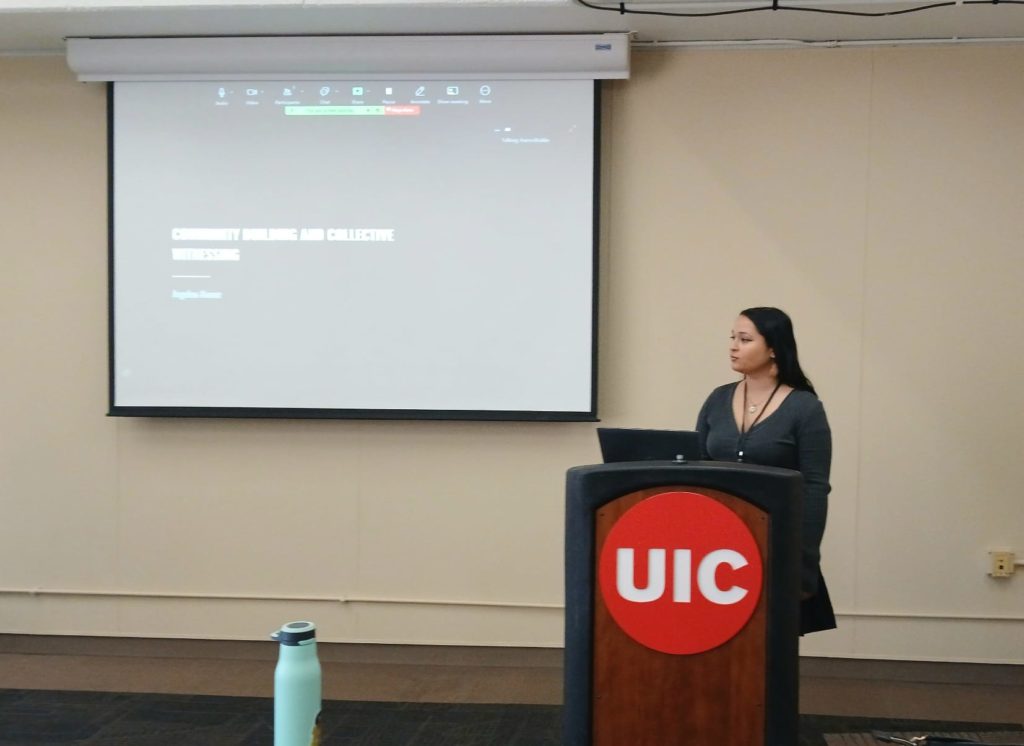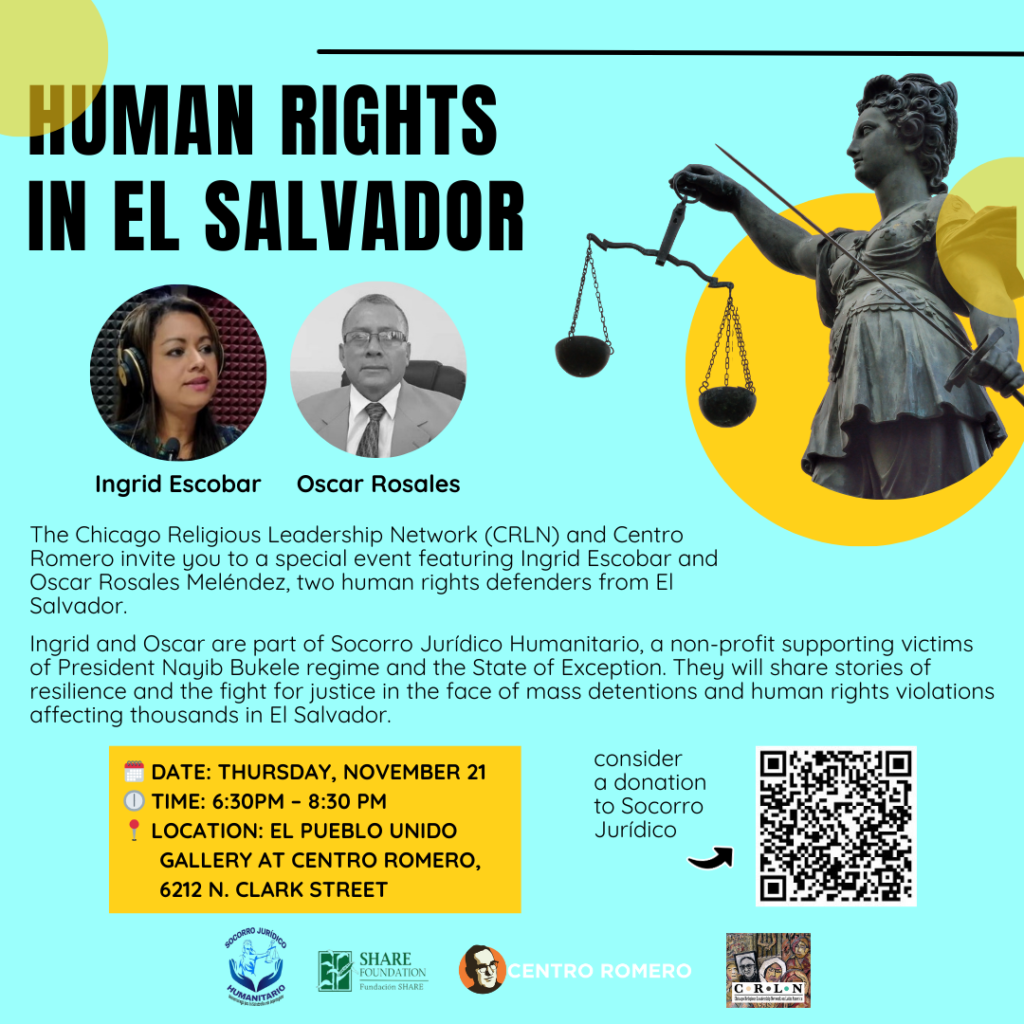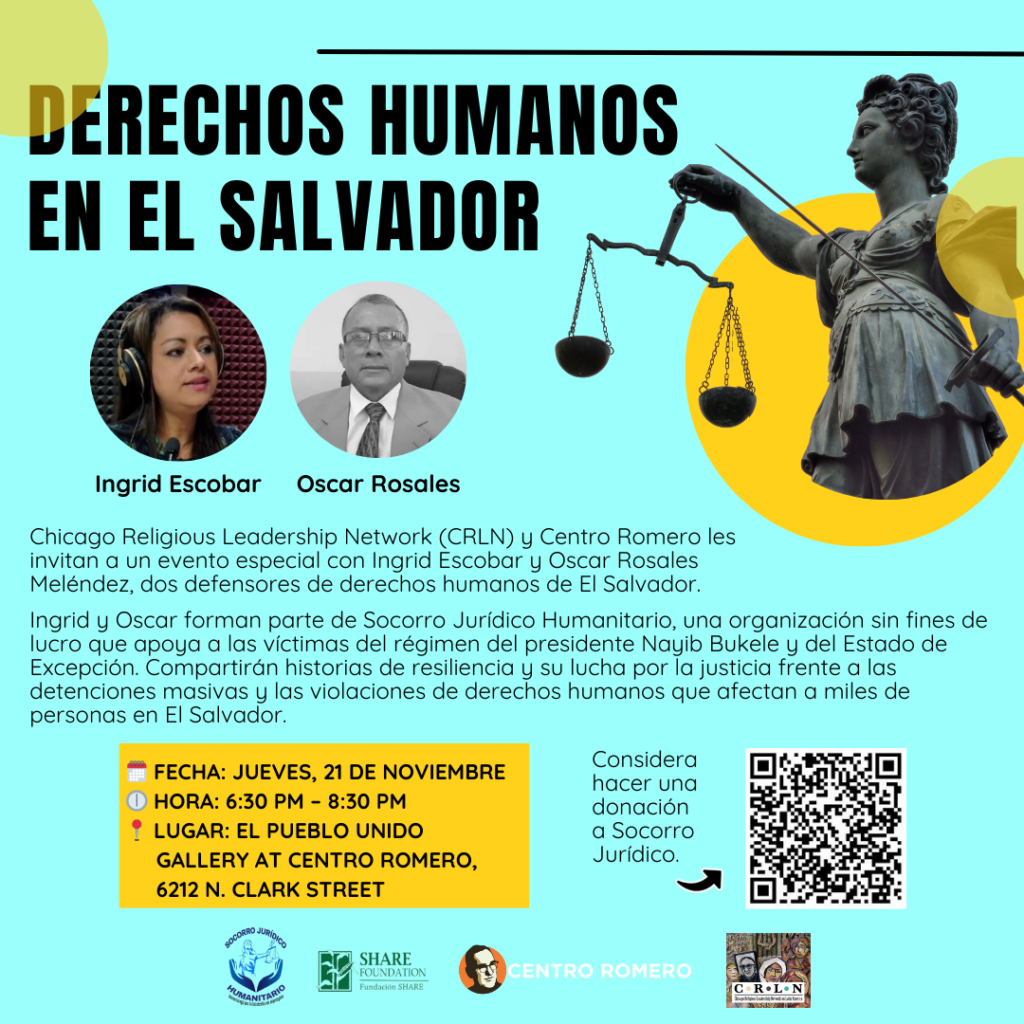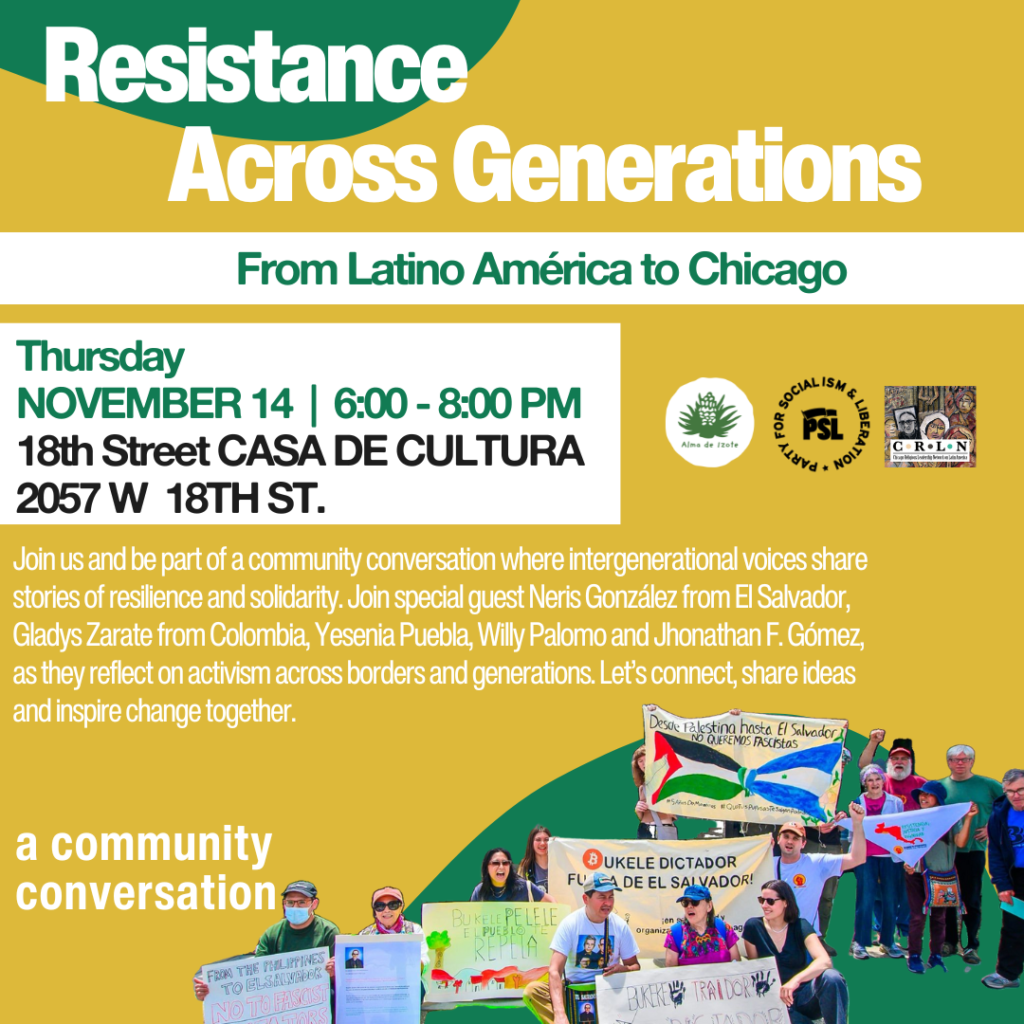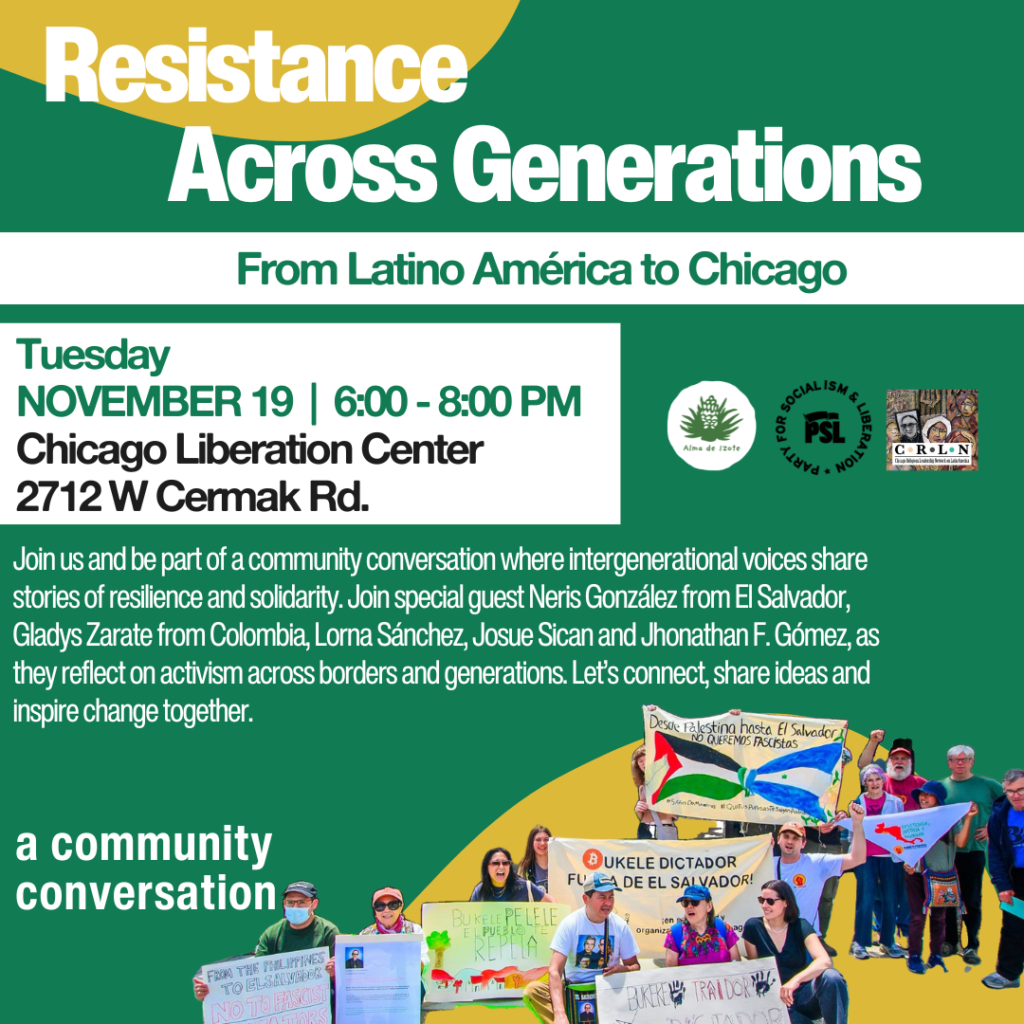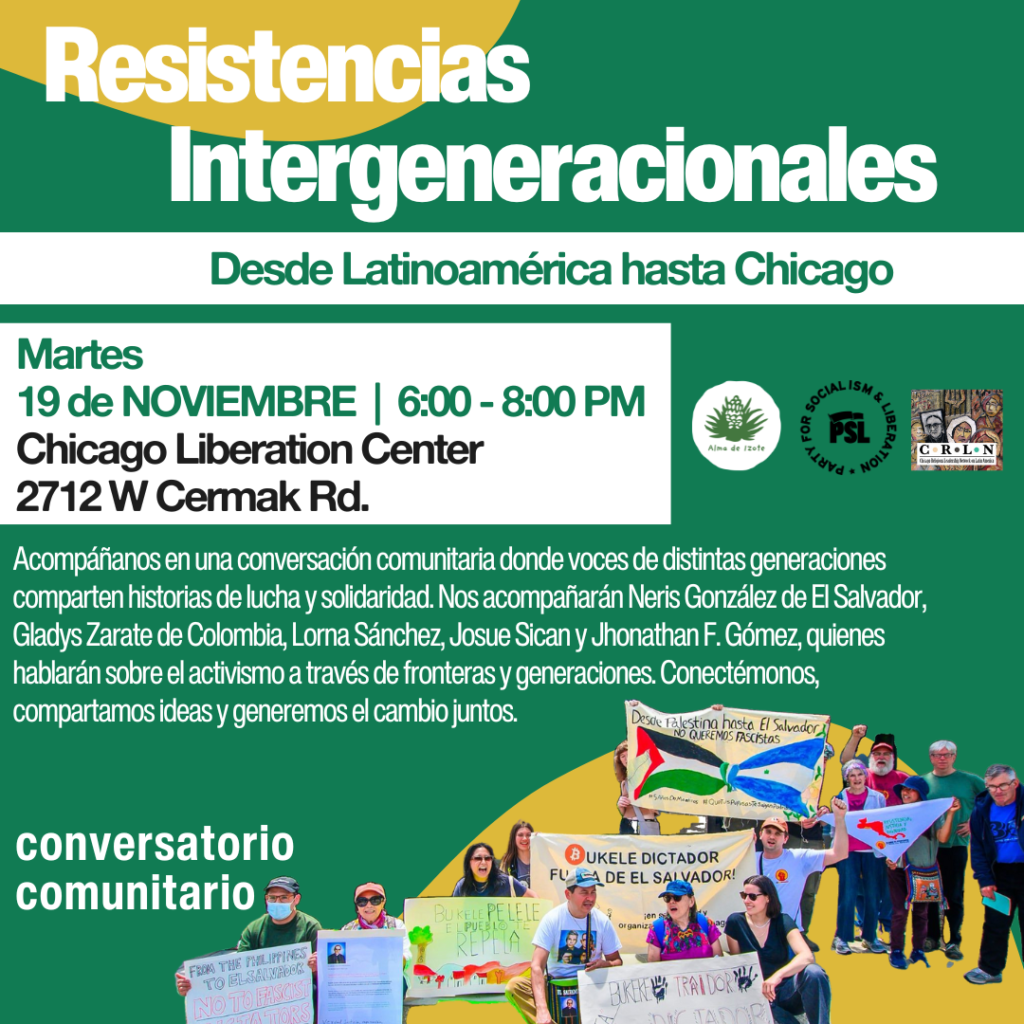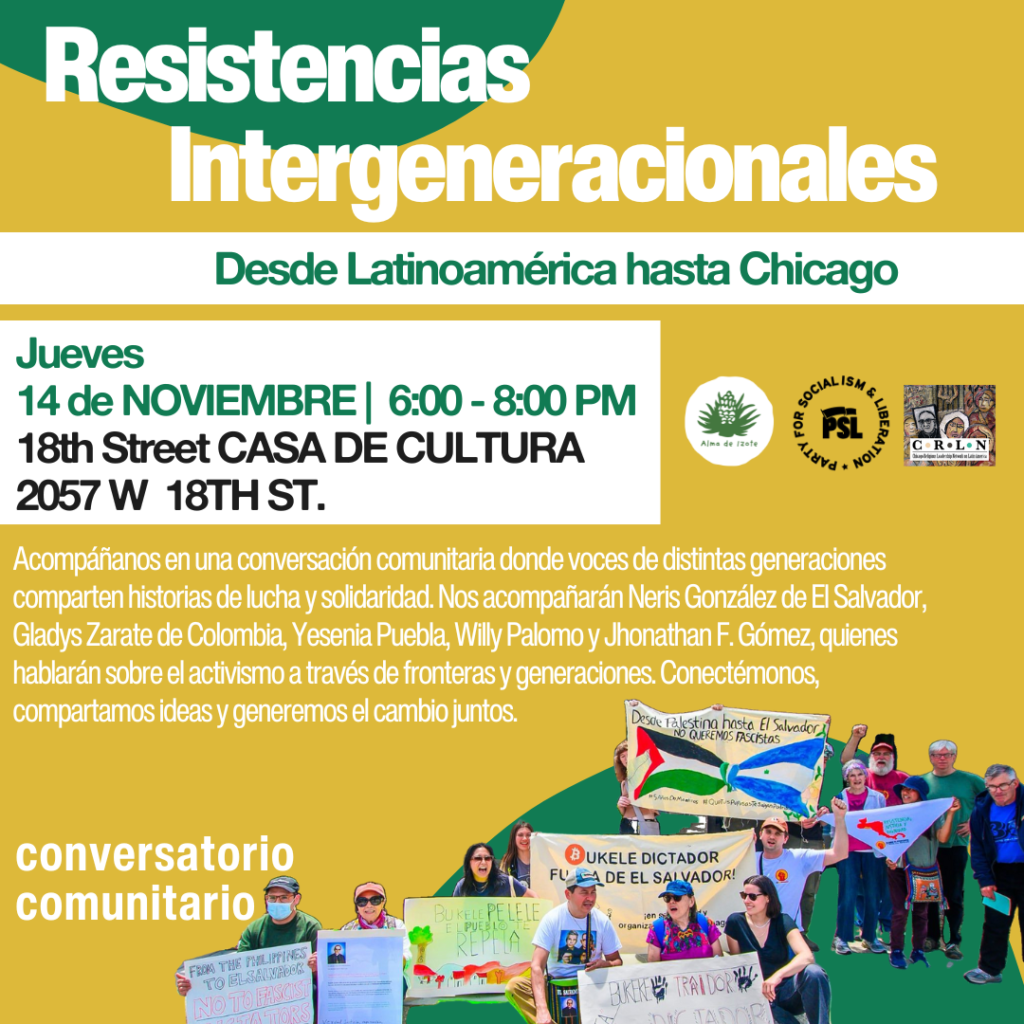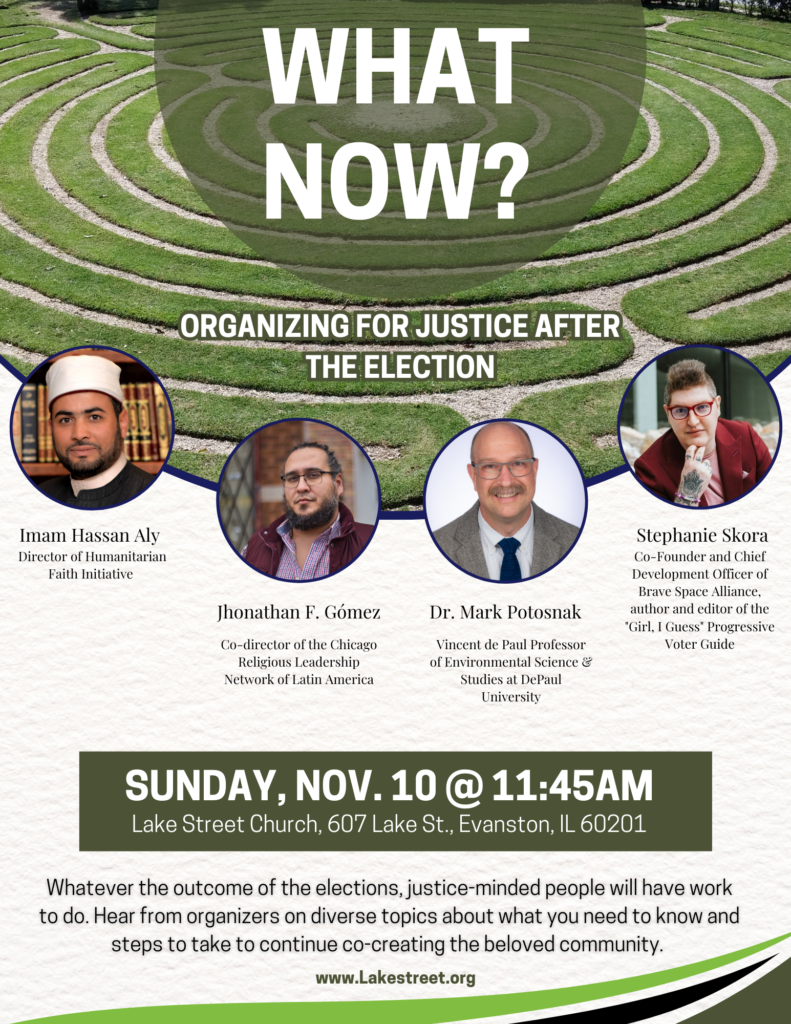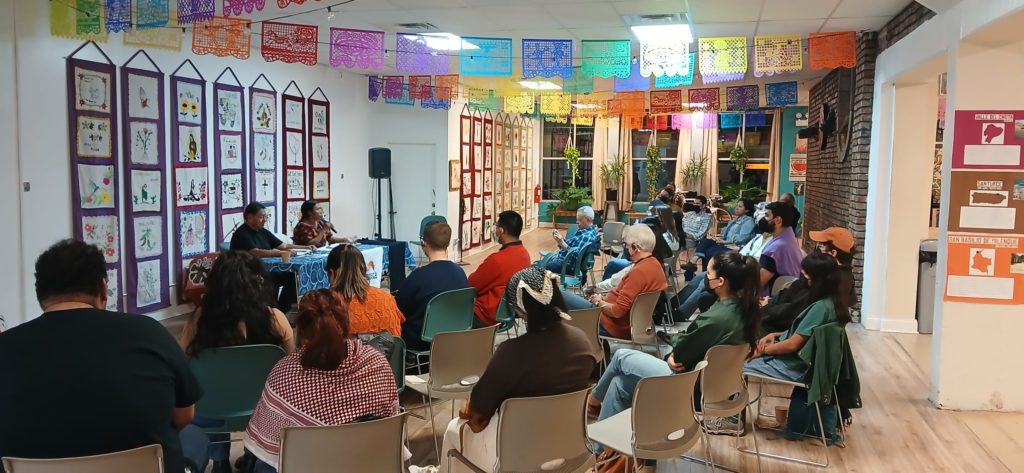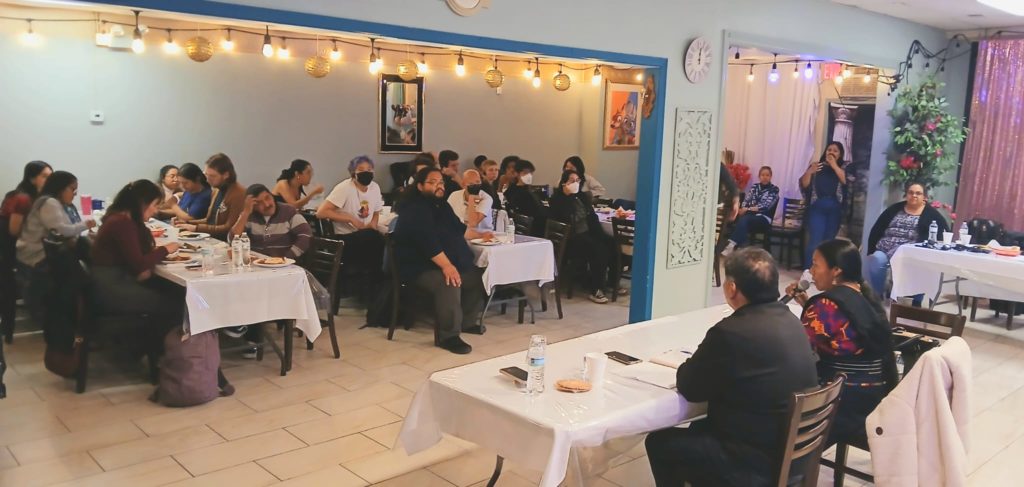We join the Committee in Solidarity with the People of El Salvador (CISPES), Alma de Izote collective in Chicago, and other organizations and groups in solidarity with the people of El Salvador.
November 23, 2024
As organizations and collectives from the Salvadoran diaspora and individuals in solidarity with El Salvador from different parts of the world, we send a message of solidarity to popular organizations such as the Block of Resistance and Popular Rebellion (Bloque de Resistencia y Rebeldía Popular), the Movement for the Defense of Workers’ Rights, and other civil society organizations, as well as to the Salvadoran people.
We commend the people who, on this day, overcame fear and took to the streets to denounce the proposed budget presented by Bukele’s regime. This budget seeks to significantly reduce funds for key sectors essential to the quality of life of the Salvadoran people, such as health, education, agriculture, and more, while inflating budgets dedicated to military repression and government propaganda. Protesters also denounced ongoing human rights abuses, arbitrary arrests under the state of emergency, and labor and political persecution.
We stand in solidarity with public sector employees who have been unjustly dismissed during Bukele’s administration. We agree with the analysis of the popular movement that these dismissals reveal the government’s inability to manage funds to provide beneficial services to the population, while it increases unsustainable debt and grants fiscal benefits that enrich the regime, its close allies, and the wealthiest in the country. These actions of wealth accumulation by a few deepen poverty in the country and force the Salvadoran working population to migrate.
We support the call of the social movement to reject the budget proposed by the Executive Branch and to replace it with a budget that addresses the population’s needs, as outlined in the Block of Resistance and Popular Rebellion’s Alternative and Popular Budget proposal.
We demand respect for the rights of the Salvadoran people, an end to persecution, respect for freedom of expression, the reinstatement of dismissed workers, the release of all those arbitrarily and unjustly detained under the state of emergency, and the immediate release of all political prisoners, including the leaders of the National Alliance El Salvador en Paz, who have been peacefully denouncing the abuses of Bukele’s regime.
We invite the international community and allied organizations to join the popular organizations in El Salvador in their denunciations and their struggle for a dignified life for the Salvadoran working class.
